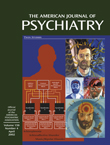To the Editor: I agree with Dr. Kalian et al. that postmortem psychiatric diagnosis is speculation at best, but diagnosis was not the goal. The goal was a better understanding of what comprises creative genius. Their efforts to add quantitative data to the existing biographical store should be encouraged.
Dr. Varga’s hypothesis that the mysterious crisis in Dickinson’s life, coinciding with the period of her greatest creative productivity, was triggered by a failed love relationship with another woman is shared by feminist scholars. However, most of Dr. Varga’s comments appear to be based on information from Dickinson’s poems. To consider the metaphor of poetry as autobiography is highly questionable. There has long been speculation about Anthon as her love and/or lover, but little or no correspondence between them survives. The other principal candidate is her sister-in-law Susan Gilbert Dickinson, to whom Emily Dickinson wrote passionate love letters over a period of years.
Dr. Hirschhorn’s certainty about what Dickinson’s physician meant when he diagnosed her with nervous prostration is puzzling considering that no medical records survive. The headache to which he refers was reported by a neighbor, not by Dickinson or her doctor, and occurred during the time surrounding the illness and death of her beloved nephew the month before. The diagnosis of nervous prostration is consistent with grief superimposed on a long history of self-described anxiety and depressive symptoms, independent of the illness from which Dickinson died several years later.
Nervous prostration, or “neurasthenia,” as it was also called by then, was the diagnosis used for affective disorder. It was based on the medical belief that individuals were born with a certain amount of energy stored in the nervous system, and when they were exhausted by stress, it simply ran down, like a battery losing its charge. Nerve tonics were the treatment, and prescriptions for them were listed for the Dickinson household by the local pharmacy around the time of the diagnosis.
In his own referenced article, Dr. Hirschhorn applauds the Dickinson family doctor, O.F. Bigelow, as a progressive and diligent physician who reasoned well and kept up-to-date. However, he also disputes Dr. Bigelow’s diagnosis of Bright’s disease as the cause of death several years later. To second-guess the physician in attendance more than a century later is a tricky matter. To me, it seems more reasonable to stay closer to the data available than to adopt a new theory that cannot be tested.

